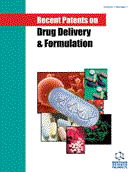Abstract
Oral immunization with vaccines has proven its worth by eradicating several diseases worldwide, yet only few oral vaccines exist in practice. This is because the oral route is plagued with various challenges for successful delivery of vaccines, such as limited absorption and high degradation in the gastrointestinal tract. Tremendous research in the last decade has made bilosomes a potential carrier system for oral immunization. Bilosomes with its name derived from bile salts (which is one of its major constituent), is a ‘niosome-like’ colloidal carrier. The collective information addressed through this review, convincingly points out that factors such as size, composition (type of bile salt, and lipid), charge, ligand attached, etc., which show significant influence on the type, and amount of immunity developed following the oral administration of bilosomes. These bile salts containing vesicular carriers have been employed to treat various serious conditions. Some of these methods have been successfully established into patents. Bilosomes loaded with antigens, peptides and other biological materials for the treatment of influenza, heart failure, diuresis, Irritable Bowel Syndrome (IBS) and other gastrointestinal disorders have been discussed in the present article.
Keywords: Bile salt, gut-associated lymphoid tissue, M-cells, Peyer’s patches, receptor-mediated targeting.
 41
41 3
3














